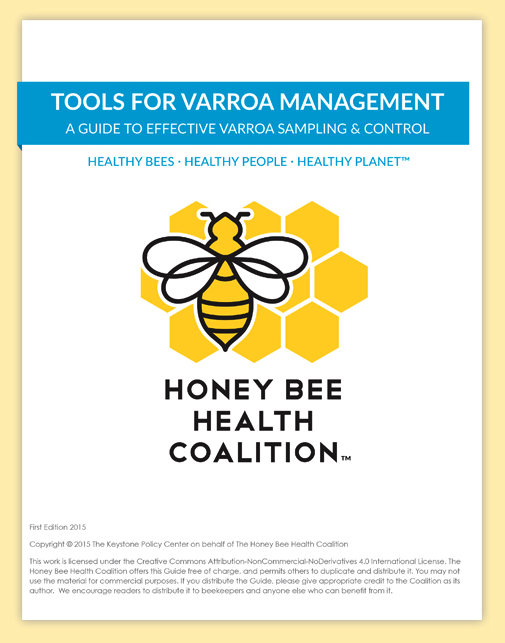ocba AT lists.ibiblio.org
Subject: Orange County, NC Beekeepers
List archive
- From: annallys Goodwin-Landher <annallys AT hotmail.com>
- To: Alwyn Smith <alwyn.smith AT gmail.com>
- Cc: Lewis Cauble <lewis AT hivebody.com>, OCBA Listserv <ocba AT lists.ibiblio.org>
- Subject: Re: [ocba] Great
- Date: Tue, 15 Mar 2016 19:04:54 +0000
|
No place in the email did I say that "Varroa is not a problem"
What I said is it is not the enemy nor is it the major problem we face about bees. It is part of several problems bringing bees down.
Better to be informed, educated and know our history of how we got into this mess, then make decisions rather than be led around the nose by industry whether it's through research, the USDA or the companies that have a vested interest in us staying ignorant
so they can attend to their bottom line....
Annallys Goodwin-Landher
annallys AT hotmail.com From: Alwyn Smith <alwyn.smith AT gmail.com>
Sent: Tuesday, March 15, 2016 10:48 AM To: annallys Goodwin-Landher Cc: Lewis Cauble; OCBA Listserv Subject: Re: [ocba] Great Please stop this nonsense. This discussion is about Varroa. Every article that Lewis just provided is supported by peer- reviewed journal articles, unlike your post challenging the importance of varroa.
There is no hocus-pocus here. Varroa mites are a real problem. If you doubt it, do a sugar shake test on your bees.
Then read the resources provided and learn from them.
On Tue, Mar 15, 2016 at 10:13 AM, annallys Goodwin-Landher
<annallys AT hotmail.com> wrote:
|
-
[ocba] Great,
Lewis Cauble, 03/09/2016
-
Re: [ocba] Great,
Randall Austin, 03/10/2016
- Re: [ocba] Great, Lewis Cauble, 03/10/2016
-
Re: [ocba] Great,
mark powers, 03/14/2016
-
Re: [ocba] Great,
Walter Starks, 03/14/2016
-
Re: [ocba] Great,
Rob Cook, 03/14/2016
- Re: [ocba] Great, Randall Austin, 03/14/2016
-
Re: [ocba] Great,
Lewis Cauble, 03/15/2016
-
Re: [ocba] Great,
annallys Goodwin-Landher, 03/15/2016
-
Re: [ocba] Great,
Alwyn Smith, 03/15/2016
- Re: [ocba] Great, annallys Goodwin-Landher, 03/15/2016
-
Re: [ocba] Great,
Alwyn Smith, 03/15/2016
-
Re: [ocba] Great,
annallys Goodwin-Landher, 03/15/2016
-
Re: [ocba] Great,
Rob Cook, 03/14/2016
-
Re: [ocba] Great,
Walter Starks, 03/14/2016
-
Re: [ocba] Great,
Randall Austin, 03/10/2016
Archive powered by MHonArc 2.6.24.
